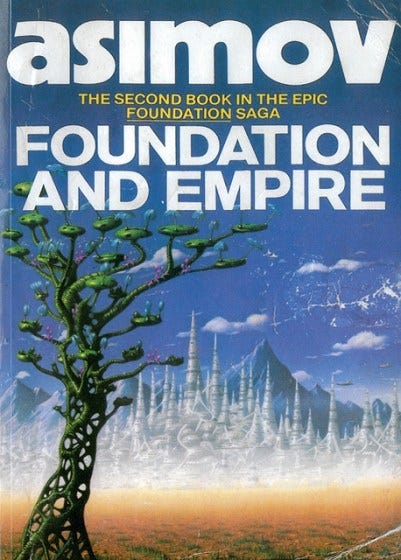Peering Through the Fog
The Uncertain Shape of the Next American Era
Predicting the future is a fool's errand, but understanding the forces at play – the decline of American exceptionalism, the fate of oligarchs, economic realities, and the AI wildcard – is crucial for long-term strategy.
The human race is an ever-evolving story told over thousands of years by a countless number of voices.
— Dr. Hari Seldon
While our immediate focus must be on navigating the current crisis, it's natural to wonder what the other side might look like. What kind of society will emerge from this period of upheaval? It's important to acknowledge upfront that predicting the future with certainty is impossible. However, by understanding some of the underlying forces at play, we can make educated guesses about the general direction things might be heading.
If the cyclical theories hold true, the current "Crisis" or "Warfare" phase will eventually give way to a new "High" – a period of renewed civic engagement and social cohesion. Humanity apparently needs to destroy the existing system1 to create a radically different future.
One likely outcome of this transition is a recalibration of America's role in the world. The era of unquestioned American exceptionalism and global dominance is drawing to a close. We will no longer be the essential country as we shift towards a more inward focus. The United States will remain a major global power,2 but no longer the sole super power.
The fate of oligarchs and monopolies within our domestic economy is another crucial question. Will the immense concentration of wealth and power be curtailed through regulation and antitrust measures, or will these forces solidify their grip, ushering in an era of de facto oligarchy? Historically, American citizens have displayed a strong aversion to both unchecked private power and hereditary aristocracy. My inclination is to believe that there will be a pushback against the current levels of inequality, but the outcome of this struggle is far from certain.
Another shift looms in how we view scientists and fund research. The crisis phase has exposed a growing distrust in experts, fueled by moments like the COVID-19 pandemic, where scientists sometimes blurred the line between data and policy.
Voters want scientists to stick to their expertise - say, how to reduce viral transmission - and leave broader societal prescriptions, like lockdowns or mask mandates, to elected officials. This isn’t anti-science; it’s a demand for clarity in roles. Scientists should inform, not dictate.
Worse, we risk devaluing research itself. The U.S. has long led the world in innovation, with universities like MIT and Stanford driving breakthroughs in tech, medicine, and energy. But public support for funding is wobbling. Budget pressures and skepticism of “ivory tower” elites3 could lead to cuts in federal grants, which accounted for $83 billion in university research in 2023, per the National Science Foundation.
Economic realities will also play a decisive role in shaping the future. The long-term imbalance between taxation and entitlements is unsustainable. Economics, as they say, is a cruel mistress, and eventually, these will need to be brought into closer alignment. Will we raise taxes on the wealthy, as Yankeedom and the Left Coast might demand, or slash social programs, as the Borderlands & Deep South prefers? The answer depends on who wins the crisis.
Finally, the rapid advancement of Artificial Intelligence represents a significant wild card. Its potential impact on everything from employment and the economy to social interaction and national security is vast and largely unpredictable. How we manage the development and deployment of AI will undoubtedly be a defining factor in shaping the next American era.
While the specifics of the future remain hazy, understanding these broad trends can help us prepare for the challenges and opportunities that lie ahead. However, it's critical to remember that our immediate task is to navigate the present crisis effectively. The long-term vision is useful, but it cannot distract us from the urgent need to address the dangers and divisions that define our current political reality.
«previous Part 3 of 6 next»
Bureaucracy does not unwind willingly.
We might even choose to be just a regional power, especially if we totally hose up our economy.
Our existing research system, while it makes amazing advances, also has a ton of problems from inefficiencies to inadequate peer review to close mindedness. This makes it a larger target for those wanting to cut it back.



I agree completely.
Science is losing for two reasons - 1) If you use science to bludgeon the other side into submission, don't be surprised if they do the same, or worse, get rid of your weapon of choice. 2) A lot of science is, get this, crap. Sabine Hossenfelder has argued that physics hasn't made a substantial advancement in 50 years. 50% of published psychology studies fail replication. Many other sciences are facing the same problem. As a scientist I see this as a red flag. There are some sciences, I'm sorry to say, where advancement is simply not possible. There is little, if anything, new to discover, and the number of researchers in those fields needs to shrink, by a lot. Direct the funding to where it can be of use.
I am intrigued by the Abundance Agenda for the Democrats.